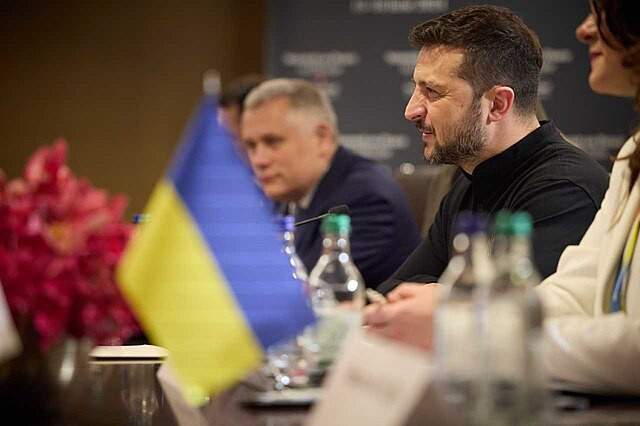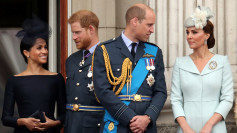Ukrainian President Volodymyr Zelensky has proposed a significant shift in his approach to the ongoing war with Russia, suggesting a possible ceasefire if NATO extends a protective umbrella over the territories currently under Kyiv's control. In an interview with Sky News on Friday, Zelensky revealed his willingness to temporarily set aside the issue of Russian-occupied regions for future diplomatic negotiations.
"If we want to stop the hot phase of the war, we need to take under the NATO umbrella the territory of Ukraine that we have under our control," Zelensky stated. He stressed the urgency of securing such protection, adding, "Then on the [occupied] territory of Ukraine, Ukraine can get them back in a diplomatic way."
This marks the first time Zelensky has openly indicated flexibility in his stance. Previously, Ukraine had insisted on restoring its 1991 borders, which include Crimea and the four regions Russia annexed in 2022. The comments come amid increasing international calls for a peace settlement and as President-elect Donald Trump prepares to take office with promises to end the war swiftly.
Trump's proposed plan reportedly involves freezing the current frontlines, delaying Ukraine's NATO aspirations for two decades, and bolstering Kyiv with weapons to deter future aggression. Zelensky hinted that the "NATO umbrella" he envisions might not require full membership but could involve security guarantees from key NATO members, including the United States, Britain, France, and Germany.
"No one has offered us to be in NATO with just one part or another part of Ukraine," Zelensky said. However, he acknowledged the possibility, stating, It "could be possible, but no one offered."
The president's remarks arrive as diplomatic efforts intensify to end a conflict that has ravaged Ukraine and destabilized global security. The war began in February 2022 when Russian President Vladimir Putin launched a large-scale invasion of Ukraine, capturing vast territories in the east and south. Moscow has since insisted that Kyiv accept the loss of these regions as a condition for peace talks, a demand Ukraine has consistently rejected.
Zelensky emphasized that any ceasefire agreement must ensure long-term security. "We need [NATO protection] very much, otherwise [Putin] will come back," he said. "Otherwise, how are we going to go to a ceasefire? For us, it's very dangerous."
Trump's incoming administration has signaled an eagerness to mediate, with Vice President-elect J.D. Vance outlining a plan to create a demilitarized buffer zone along the current frontlines. "What this looks like is Trump sits down, he says to the Russians, the Ukrainians, the Europeans: You guys need to figure out what does a peaceful settlement look like?" Vance said in September.
The proposal has sparked debate among Western leaders. Former British Prime Minister Boris Johnson suggested that European peacekeeping forces could monitor any ceasefire line between Ukrainian and Russian forces. Johnson argued that such an arrangement must come with robust security guarantees to prevent Russia from regrouping and launching further attacks.
"A lot of different countries proposed a ceasefire," Zelensky admitted in the interview. "The question is, ceasefire where?"
The Ukrainian president also expressed a desire to work directly with Trump, noting conflicting advice from the president-elect's advisors. "I want to share with him ideas, and I want to hear from him," Zelensky said. He described their previous meeting in September as "very warm, good, and constructive," adding, "It was an important first step-now we have to prepare some meetings."
Meanwhile, analysts remain cautious about the feasibility of Zelensky's proposal. Russia continues to control approximately 20% of Ukrainian territory, including parts of Donetsk, Luhansk, Kherson, and Zaporizhzhia. These regions were annexed following referendums widely condemned as illegitimate by the international community.
James Stavridis, a former NATO commander, predicted that any settlement might leave Russia in control of the occupied territories while allowing the rest of Ukraine to pursue democratic governance and NATO membership. "Keep in mind that a negotiated settlement is not something the U.S. can impose-it's for the Ukrainians and Russians to agree upon," Stavridis told Newsweek.






